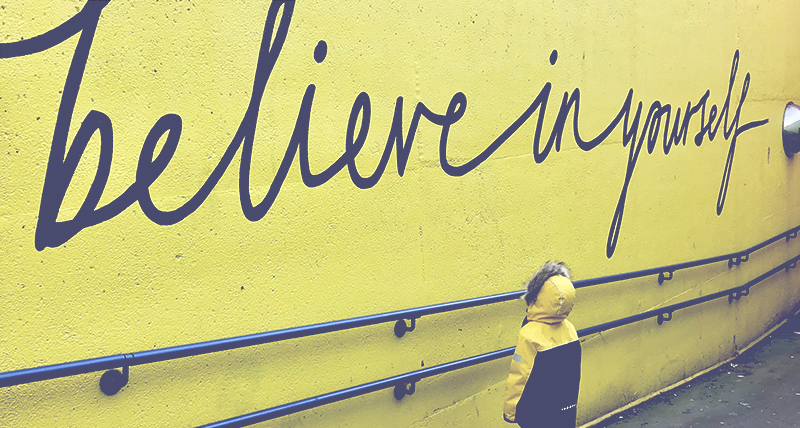Sticking to your 2022 New Year's Resolutions: 7-Step Guide
The 7 top tactics that will help you make and keep your New Year’s resolutions this year.
It’s that time of the year where we reflect on what we achieved in 2021 and contemplate what we want to accomplish in the year to come. January is the perfect time to start afresh, take on new challenges and explore new opportunities.
The New Year is a great motivator for many of us to turn over a new leaf, and people that set resolutions are 10x more likely to change their behaviour than those that don’t make this annual commitment.
That being said, more than half of all New Year’s resolutions fail (yikes!).
People pick goals that are too abstract, too large, or struggle with willpower, support or lack of a plan, and about one in 10 people who failed said they made too many resolutions. We all know what it feels like to fall off the resolution wagon by mid-January!
There’s a science to developing new habits (and no, unfortunately you can’t just write it on a sticky note and it happens overnight).
So, arm yourself with these 7 top tips for success and give yourself the best chance of achieving your resolutions this year.
1. Dream big
First up, the fun part: Choose a mission that inspires and excites you. Picture the future you at the end of the year and imagine all the strides this person has made as a human. Ambitious goals will not just get your buy-in, but others will be inspired to cheer you on or even to help you get there.
This dream will be your North Star that you will then build achievable resolutions and goals around. Write it down somewhere you’ll see it regularly, like your bedroom (you can write it as an affirmation statement for extra effect).
Tip: Keep it simple
When making resolutions, pick no more than three that you would like to achieve for the year. It is easy to feel overwhelmed by a long list of resolutions and swamped by the amount of effort that is required for each. In a 2014 study, one in 10 people who failed their resolutions said they made too many.
Tip: Make it meaningful
Studies done by psychologists have found that you’re much more likely to hit a goal, build a habit, or stick with a resolution if it aligns with your core values. Linking your New Year’s resolution or life change to your values will remind you why you set the resolution in the first place and help keep you on track.
Essentially, you’re working towards something you care about for the right reasons. Researchers have spent years exploring the rewards that motivate us to act and one of the most powerful motivators comes from intrinsic motivation— internal rewards like a sense of accomplishment, internal drive, or enjoyment.
2. Break Down Your Goals
Arguably the most important task. It is easy to quickly feel disheartened when you don’t make progress on large or abstract goals. In the aforementioned 2014 study, 35% of participants who failed their New Year’s Resolutions said they had set unrealistic goals.
When you know exactly what you need to achieve, it’s so much easier to make progress. Smaller goals are easier to tackle and will steadily move you towards your ultimate goal. Plus, you’ll need to get used to any new life changes – it is a lot easier making adjustments one step at a time.
Couch to 5k but never run before? You don’t need to go straight out the door and knock off a quick 10k. Start by getting used to putting your running gear on, then get used to walking around the block in your gear, then get used to going for a jog 2 times a week. Health resolutions in particular are incremental.
So, take your big dream and break it down into bite-size chunks. The trick here is to make sure nothing in your list of tasks is going to overwhelm you. Start with tiny steps and beaver away at them.
Tip: Easy does it
In the spirit of not overwhelming yourself, go for the easy tasks first and don’t think you need to dive headlong into the toughest tasks whilst you have the energy.
This isn’t procrastination; you’re making real progress towards your goals and building confidence to take on – and succeed at – the more difficult tasks.
Tip: Be SMART
It is 2022. Most of you will know what SMART objectives are. Your goals need to be:
- Specific (narrow down to real numbers and results, avoid being vague)
- Measurable (make sure your goals are trackable)
- Attainable (challenging, but possible to achieve)
- Realistic (be honest with yourself)
- Time-bound (give yourself real deadlines)
3. Make a Plan
Put some time into planning early on. If you’re a disorganised person, a little effort at this stage will save masses of time down the road.
This is where you need to ask yourself (and answer…) a lot of questions:
- What do you need to get going? Perhaps time? Equipment? Qualifications? Money?
- How will you get everything you need at the right time?
- How can you change your current setup to make success as easy as possible?
- Who can help you to make these changes?
- What order should you tackle your goals?
- Have you got enough capacity?
Want to walk on the moon? Great! You’ll just need a Masters in a STEM subject, flight experience, proficiency in languages, media training, and to pass strenuous physical assessments, among other things. Or you need to be a billionaire. You can quickly see that, without breaking the dream down into achievable steps and putting them into a plan, you wouldn’t have a place to start, an order of service or a way of monitoring your progress.
Even a quick back-of-napkin plan will show that this dream is a multi-year effort! The planning stage is important for creating a roadmap for what you might be able to achieve in the year.
Tip: Plan for lumps and bumps
Expect slip-ups, backward steps and hurdles as you plan. Allow for things to go wrong and know what you’ll do when these things happen.
Plan for flexibility too: If you can’t stick to a new routine, don’t give up, but try moving timings around. Fell back into old habits? Don’t give up – pretend it didn’t happen, wake up the next day and start again. There will be lots of barriers, but the way forward is to not give up or engage in negative thoughts. Simply try something different or focus on what you’re actually trying to achieve.
4. Make yourself accountable
State your resolutions to at least one person other than yourself.
Socialising your commitment with others makes you much less likely to quit down the line. Tell people your pledge, and ask them to hold you to account for achieving your goals. There might be people you won’t want to let down, or you can make a public commitment on social media.
The more you stand to lose, the more likely you are to succeed at your resolution. Apart from reputation, the other biggest commitment you can make is financial. You can enrol on a professional course, buy that gym membership or even place a bet with friends.
The annual ritual of setting resolutions doesn’t have to be an anxiety-fueled situation. You just need to choose the right goal and process used to go about achieving it – be sure to write it down to keep yourself accountable.
5. Mobilise your support system
Having people to support you to hit your goals will not only make sure you’re accountable for your actions, but will also allow you to have someone to lean on when you encounter difficulties with your goals. They can keep you motivated and on the right path, offer words of encouragement or even help you troubleshoot problems.
Friends and family will want you to succeed, so tell them about your plans – especially if you need their help to free up your time or to change routines, and outline why you want to make this change.
However, also be mindful to cut back on bad influencers (such as the smoking group at work). Be honest with people why you’re trying to achieve your goals and you’ll find most people supportive.
Tip: Community matters
Find a group of like-minded people striving towards the same goal, or even ask a friend or loved one to join you in your resolution.
Not only can you support each other, advice on problems you may be facing will be forthcoming from those who have been there before and, in turn, you may reinforce your knowledge by supporting others in the same way. It is more rewarding – and much more fun – to work together towards a common goal than going on a difficult journey alone.
For example, discussion boards help to create a social presence in an online course along with a sense of community and camaraderie. Presence in a community, in turn, can foster emotional connections. They also improve student learning and can create greater feelings of satisfaction with the course.
6. Don’t wait until the end to congratulate yourself
The great thing about the step-by-step approach is being able to reward yourself every time you tick something off the list, learn a new skill or make a new habit.
Make sure to celebrate the little things and the milestones you pass on your journey. Don’t just wait until you cross the finish line, gain your professional qualification or quit your bad habit to call yourself a winner.
Passed that difficult assignment? Grab your favourite drink and relax! Beat your personal best 1k time? Whack on your favourite tune whilst you shower! Kicked a bad habit for 2 weeks? Have a celebratory meal with friends and family! Finally organised your loft? Treat your aching back to a massage!
7. Appreciate the process
Part of the reward in reaching your goals is the journey you take – the ups and downs are what make the goal worth it when you finally achieve it. It takes consistency, perseverance and lots of hard work. There’s no easy way to achieve something that’s worth doing – mistakes are still steps towards your objective, giving you the chance to learn and adapt.
Wrinkles in your plan are inevitable, so it is necessary to stay positive throughout. This is where your support system, community or mentor can help you.
If things don’t go according to plan, don’t be down on yourself. Instead, focus on the good things you are doing and dust yourself off and start afresh tomorrow.







